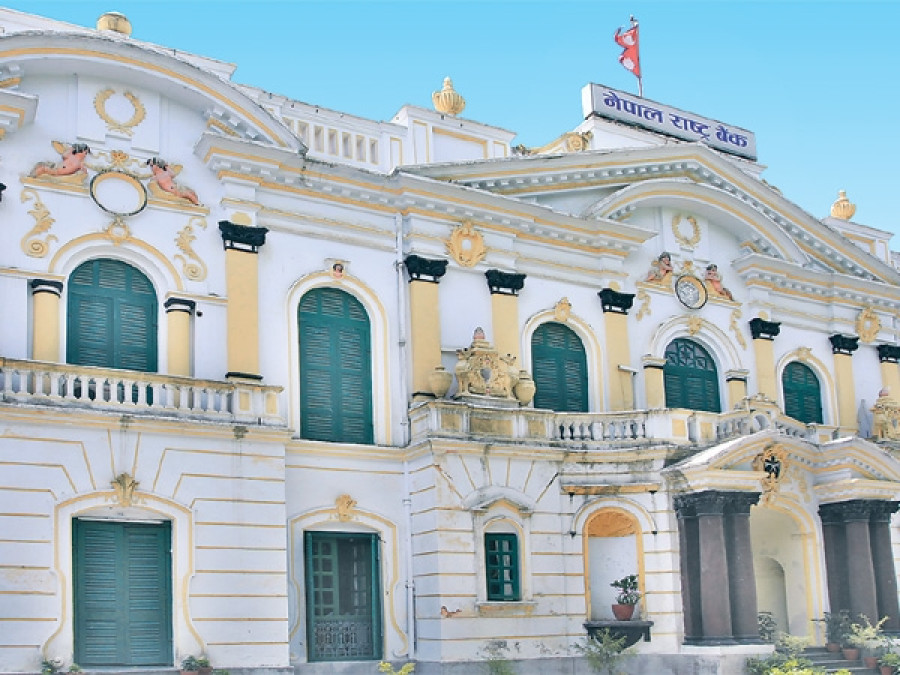Money
NRB gives extra time to problematic institutions to replenish capital
The Nepal Rastra Bank (NRB), the banking sector regulator, has directed financial institutions that have been removed from the list of ‘problematic’ institutions to meet the new minimum regulatory paid-up capital requirement within mid-July 2019.
The Nepal Rastra Bank (NRB), the banking sector regulator, has directed financial institutions that have been removed from the list of ‘problematic’ institutions to meet the new minimum regulatory paid-up capital requirement within mid-July 2019.
Arun Finance and General Finance are two financial institutions that have just been removed from the list of ‘problematic’ institutions. Arun Finance was declared ‘problematic’ in January 2015 and removed from that list in January 2017. General Finance was declared ‘problematic’ in May 2013 and removed from that list in December 2016.
Currently, nine development banks and finance companies are categorised as ‘problematic’ financial institutions. They are: Nepal Share Markets and Finance, Crystal Finance, Kuber Merchant Finance, Capital Merchant Banking and Finance, World Merchant Banking and Finance, Narayani Development Bank, Nepal Finance, Corporate Development Bank, and Lalitpur Finance. The financial health of these companies had deteriorated after failing to recover a huge chunk of loans extended to borrowers.
“These companies can be removed from the list of problematic institutions if they maintain 25 percent of the new paid-up capital requirement and meet the capital adequacy ratio. These institutions can meet 25 percent of the new paid-up capital requirement by factoring in call-in-advance [the money contributed generally by shareholders for the purpose of injecting fresh capital in the financial institution],” says a directive issued by the NRB on Tuesday.
The NRB has recently revised the minimum regulatory paid-up capital requirement for banks and financial institutions. As per the new provision, national-level development banks must hold minimum paid-up capital of Rs2.5 billion, up from Rs640 million in the past. Development banks operating in four to 10 districts and one to three districts, on the other hand, should maintain minimum paid-up capital of Rs1.2 billion and Rs500 million, respectively, up from Rs200-300 million and Rs100-300 million in the past. Similarly, national level finance companies and those operating in four to 10 districts must maintain minimum paid-up capital of Rs800 million, up from Rs300 million in the past, while finance companies operating in one to three districts should maintain minimum paid-up capital of Rs400 million, as against Rs100-300 million in the past.
“Problematic institutions can meet the new minimum regulatory paid-up capital requirement within two years of getting rid of the ‘problematic’ status,” says the NRB directive.
Of the institutions identified as ‘problematic’ by the financial sector regulator, financial health of Corporate Development Bank, Lalitpur Finance and Kuber Merchant Finance is gradually improving, the NRB said. However, the fate of Nepal Share Markets and Finance, and Crystal Finance still hangs in balance. In Crystal Finance’s case, the Supreme Court is yet to decide on whether to liquidate the finance company as proposed by the NRB, an NRB official said on condition of anonymity.
The apex court has also stayed NRB’s decision to readjust the paid-up capital of Nepal Share Markets and Finance. “As a result, we have not been able to do anything, although the finance company could be given a new lease of life by merging it with another financial institution or letting it be acquired by another financial institution,” the NRB official said.




 9.7°C Kathmandu
9.7°C Kathmandu














